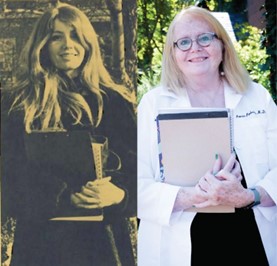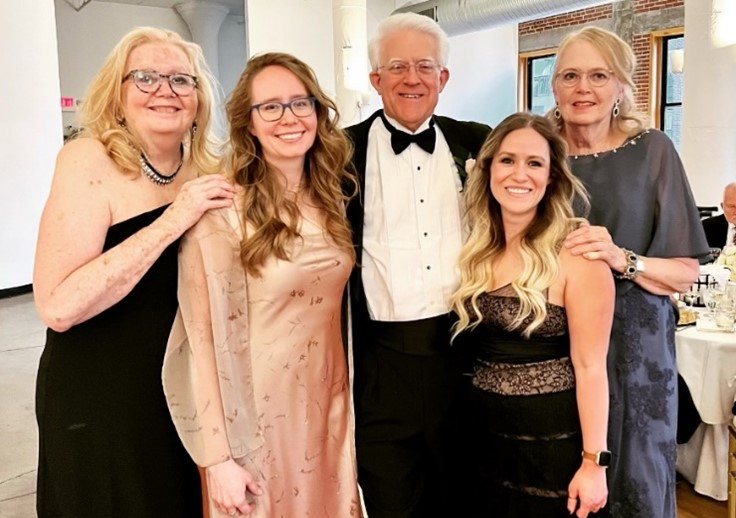Patricia Penkoske, MD ’74, spent her career as a practicing pediatric cardiac surgeon and researcher in the U.S. and Canada, and returned to WashU as a faculty member and practicing physician in critical care in 2005. In addition to her continued work for the medical school, she is co-chair of her upcoming 50th reunion committee, a member of the Board of Trustees at Lindenwood University, and a sought-after medical expert witness.
What was your journey to WashU like?
When I was at Lindenwood, I had a summer job at WashU in Dr. Michael Welch’s radiation research lab that was developing the NMR scan, the PET scan, and drugs for radiation therapy. I attended med school lectures; I even got on some research papers.
I thought, “This is totally cool.” But I was from a small college. How was I going to get into medical school? As a student athlete with good grades, I could get good letters of recommendation. All I had left to do was get 99th or 100th percentile on the MCAT.
No pressure there. I was in graduate school on a Woodrow Wilson scholarship in molecular biology at the University of Wisconsin when I found out I got 100% on the MCAT.
I applied for several programs across the country, but I liked it at WashU. I did very well in medical school, but it was luck that got me there.

What was your WashU experience like?
Part of the reason I loved WashU was that I had two amazing mentors: the late Dr. Jessie Ternberg, who was a pioneer in pediatric surgery and got me interested in pediatrics; and the late cardiothoracic surgeon Dr. Thomas Ferguson, who encouraged me to be a heart surgeon. Finding good mentors is probably the most important thing that can happen to any student, and I had two at Washington University.
Why is it important to you to give back to the university?
My late husband (Francis Witkowski, MD ’78) and I had scholarships throughout medical school. I value WashU highly, and nothing – not even putting three daughters through college on my own – was going to be the difference between giving or not giving back to WashU.
Many people don’t have the means to endow a gift or pledge thousands of dollars, but you can give of your time or talent too. I like mentoring students; I like being on the med school admissions committee. There are so many ways to give back.
What excites you about the future of Washington University?
Well, for starters, when I was in my first year in 1970, women were 13% of the class, and last year it was 62%. That’s exciting!

Also, I’m excited about the research and the capability of moving science forward, especially, but not only, in the areas of cancer therapy, lung transplantation, and cystic fibrosis. I mean, there are top-of-the-world people here, and our students get to interact with them. The mentoring system is so good. The Gateway Curriculum in the med school is fantastic. Students get so much more clinical experience from the get-go. It’s engaging. It works.
And finally, Washington University, in and of itself, is a nice place. We treat people fairly. There’s quite a significant program for student and faculty mental health. And I don’t think we have an attitude here. People do good work. They want to teach. They want patients to get better. They want to push to the forefront of medicine. And that is all so laudable.